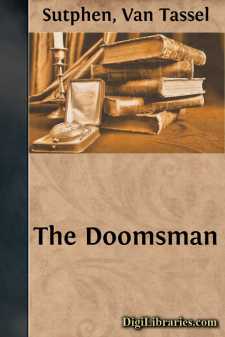Categories
- Antiques & Collectibles 13
- Architecture 36
- Art 48
- Bibles 22
- Biography & Autobiography 816
- Body, Mind & Spirit 145
- Business & Economics 28
- Children's Books 18
- Children's Fiction 14
- Computers 4
- Cooking 94
- Crafts & Hobbies 4
- Drama 346
- Education 58
- Family & Relationships 59
- Fiction 11831
- Foreign Language Study 3
- Games 19
- Gardening 17
- Health & Fitness 34
- History 1378
- House & Home 1
- Humor 147
- Juvenile Fiction 1873
- Juvenile Nonfiction 202
- Language Arts & Disciplines 89
- Law 16
- Literary Collections 686
- Literary Criticism 179
- Mathematics 13
- Medical 41
- Music 40
- Nature 179
- Non-Classifiable 1768
- Performing Arts 7
- Periodicals 1453
- Philosophy 66
- Photography 2
- Poetry 897
- Political Science 203
- Psychology 45
- Reference 154
- Religion 516
- Science 126
- Self-Help 86
- Social Science 82
- Sports & Recreation 34
- Study Aids 3
- Technology & Engineering 59
- Transportation 23
- Travel 463
- True Crime 29
Our website is made possible by displaying online advertisements to our visitors.
Please consider supporting us by disabling your ad blocker.
The Doomsman
Categories:
Description:
Excerpt
I
THE VERMILION FEATHER
A beach of yellow sand and a stranded log upon which sat a boy looking steadfastly out upon the shining waters.
It was a delicious morning in early May, and the sun was at his back, its warm rays falling upon him with affectionate caress. But the lad was plainly oblivious of his immediate surroundings; in spirit he had followed the leading of his eyes a league or more to the westward, where a mass of indefinable shadow bulked hugely upon the horizon line. Indefinable, in that it was neither forest nor mountain nor yet an atmospheric illusion produced by the presence of watery vapor. It did not change in density as does the true cloud; for all of its mistiness of outline there was an impression of solidity about its deeper shadows, something that the wind could not lift nor the light pierce. A mystery, and the boy devoured it with his eyes, his head bent forward and his shoulders held tensely.
The place was a rocky point of land jutting forth into a reef-strewn tideway. The forest came down close to the strip of beach, but there was comparatively little underwood, and the grass, growing up to the very roots of the trees, gave to the glade an appearance almost parklike. There was no house in sight, not even the thin, blue curl of a smoking hearth to proclaim the neighborhood of man. Yet the sign of human handicraft was not wholly wanting; through the tree trunks, at perhaps a hundred yards away, appeared the line of a timber stockade—enormous palisades, composed of twelve-foot ash and hickory poles, set in a double row and bound together by lengths of copper wire. It was to be further observed that the timbers had been stripped of their bark and the knots smoothed down so as to afford no coigne of vantage to even a naked foot. Add, again, that the poles had been charred and sharpened at the top, and it will be understood that the barrier was a formidable one against any assault short of artillery.
There was no beaten road or path near the line of palisades, but, following the curving of the shore, a forest track, already green with the young grass that was pushing its way through last year's stubble, stretched away to the north and south. It was hardly more than a runway for the deer and wild cattle, but it did not give one the impression of having been originally plotted out by these creatures, after the immemorial fashion of their kind. An animal does not lay out his road in sections of perfectly straight lines connected by mathematical curves, neither does he fill up gullies nor cut through hills, when it is so easy to go around these obstructions.
The boy, who sat and dreamed at the water's edge, was in his eighteenth year or thereabouts, slenderly proportioned, and with well-cut features. The delicately moulded chin, the sensitive nostril—these are the signs of the poet, the dreamer, rather than of the man of action. And yet the face was not altogether deficient in indications of strength. That heavy line of eyebrow should mean something, as also the free up-fling of the head when he sat erect; the final impression was of immaturity of character rather than of the lack of it. From the merely superficial stand-point, it may be added that he had brown eyes and hair (the latter being cut square across his forehead and falling to his shoulders), a good mouth containing the whitest of teeth, and a naturally light complexion that was already beginning to accumulate its summer's coat of tan.
He was dressed in a tunic or smock of brown linen, gathered at the waist by a belt of greenish leather, with a buckle that shone like gold. His knees were bare, but around his legs were wound spiral bands of soft-dressed deer-hide. Buskins, secured by thongs of red leather and soled with moose-hide, to prevent slipping, covered his feet, while his head-dress consisted of a simple band of thin gold, worn fillet-wise. This last, being purely ornamental, was doubtless a token of gentle birth or of an assured social station....



